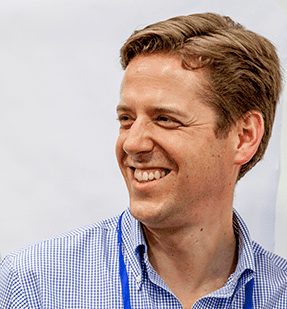By learning and practicing the core-skill of facilitation, you can design meetings where groups can reach their goal in an engaging and highly-interactive way.
If your meetings feel like a chore, are dull, or lack results, there are a few things to check before we look at the core-skill.
- Is there a clear agenda in place for the meeting, and who guides the meeting?
- Is there an agenda item at the beginning to check in on actions from last time?
- Is there an agenda item at the end to summarise actions with owners and target dates?
These three things help to give meetings focus, and foster accountability for the agreed actions. If your meetings miss some of these, have a go and try that. These bring meetings to what would become your baseline for meetings though, if you knew about the under-appreciated core-skill for supercharging your meetings.
By learning and practicing the core-skill of facilitation you can design meetings so that groups can reach their goal in an engaging and highly-interactive way. What’s more, they could even be enjoyable and fun!
The first 10 years of my work I caught on to the three things above. Yet somehow the thought of “facilitating” being a skill I should develop hadn’t actually crossed my mind. I just sought to improve the meetings I ran.
Then in 2010 I came across modern and more collaborative ways of working (including Agile) and soon thereafter I read books like Sam Karner’s “Facilitator’s Guide to Participatory Decision-Making”, Roger Schwarz’s “The Skilled Facilitator”, and Ingrid Bens’ “Facilitation at a Glance!”. There was a lot that I learned from each of these books. Practicing for some time I thought I had a pretty good handle on things. Word got around and other people in the organisation I had never met before contacted me to facilitate workshops for them.
Eventually I came across a course about facilitation for Agile practitioners. There is always something to be learned I thought, and one of the teachers was a professional facilitator, so I went for it, thinking that I’ll probably be familiar with lots of what would be covered. Well, was I wrong in my assumption.
Yes, there surely were things that I knew. The amount of new concepts, and techniques that I learned by actually learning facilitation in person was absolutely astounding though. How to design the workshop, what to be prepared for, how to adjust in the moment, how to work with different kinds of people; sure, the books cover this, and learning it in person takes it to a whole other level. In retrospect, it’s only natural that the core-skills of facilitating interactions between people is best learned with people.
Since this course I never take facilitation skills for granted anymore. Every fellow Agile practitioner and coach I get to collaborate with or support, I always pay attention to facilitation skills. Now it is a privilege that I get to facilitate a course to pass on this skill in a fully interactive in-person experience, designed to give you a good grounding in know-how, and as much practice as possible, enabling you to super-charge your Agile events.

Georg Fasching
Since 1999 I pursue my passion and proficiency in Digital Product Development while working predominantly in the payment and technology spaces. In a traditional product career from business analyst through to Executive VP of Products, it was always teamwork in the context of the organisation that fascinated me.
My discovery of Agile in 2010 sparked a new-found thirst of learning. Since going independent in 2012, I continue to learn & explore new ways of high-performance teamwork. When I'm not teaching, coaching, or mentoring Agile practitioners, leaders, or coaches, I serve leadership teams as their team coach (here's an example). Thusly I support the unlocking of major enterprise agility improvements as the leadership team journeys towards high-performance.
Over the years I got to work with a variety of companies across sectors (see below). The status quo is that only about 10% of teams are high-performing, leadership teams included. I am devoted to improving upon this as much as possible.